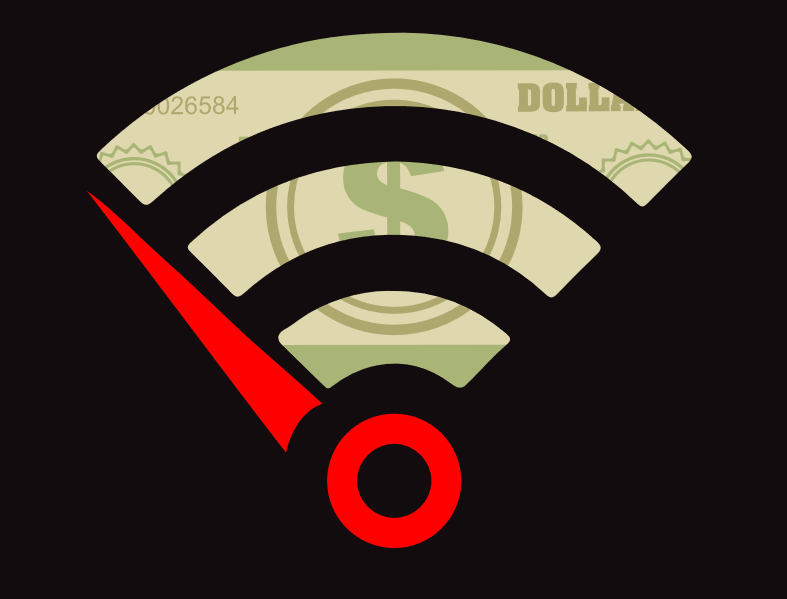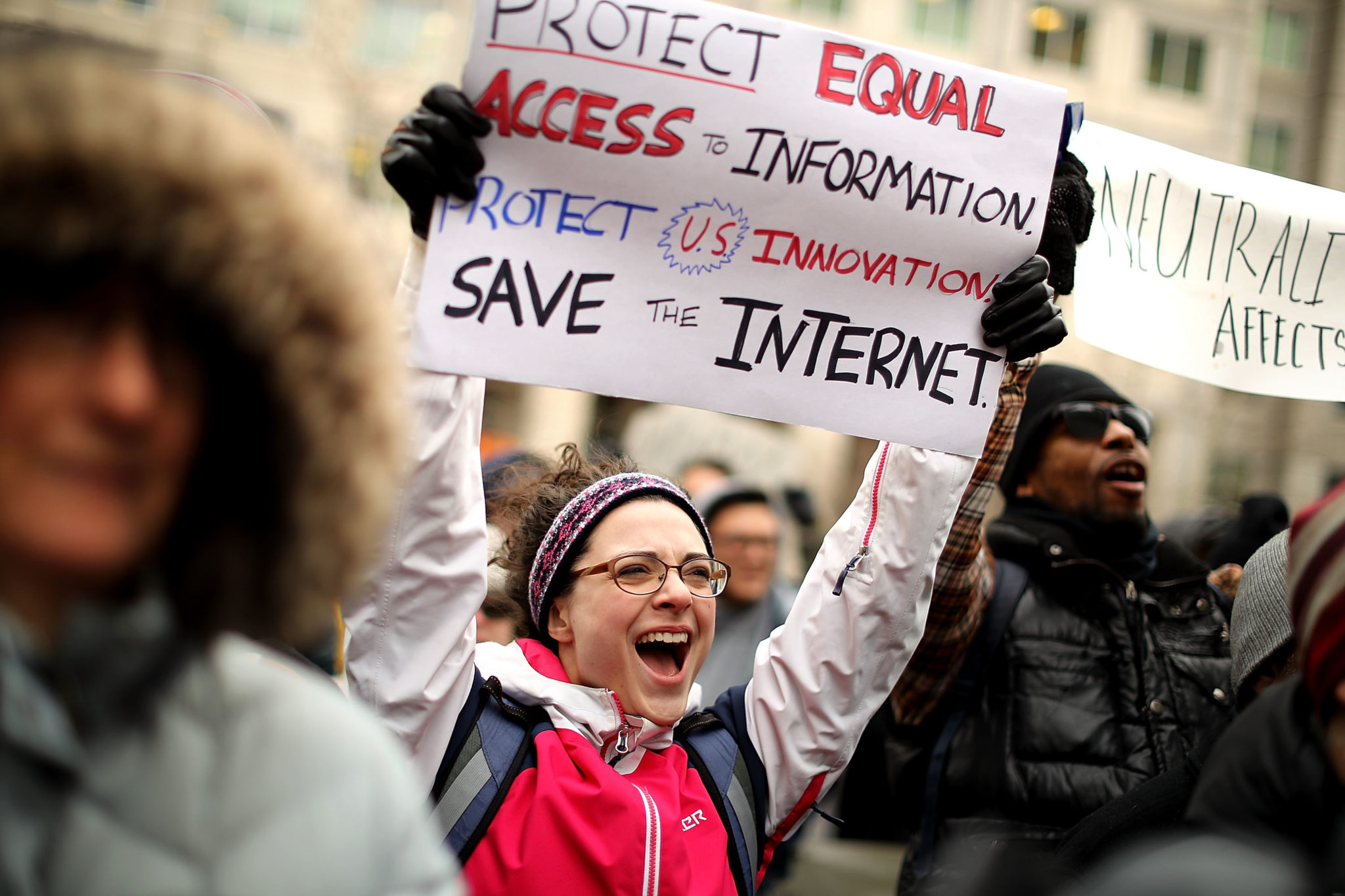Presentación legal
Informe
Informe sobre cómo el cabildeo y la influencia política de los guardianes de la banda ancha han dado forma a la brecha digital
Asuntos relacionados
Broadband connectivity has never been more important to a functioning 21st-century democracy than it is today, as the nation continues to face an unprecedented emergency caused by the COVID-19 pandemic. Unfortunately, millions of households remain on the wrong side of the digital divide as a result of market failure. The pandemic has painfully exposed the disparities in connectivity too many Americans face today, particularly for marginalized communities—where students have had to turn to parking lot Wi-Fi to do schoolwork, and households have been left behind in the vaccination sign-up process, which has moved primarily to online formats.
The report presents lobbying and campaign finance data compiled by OpenSecrets.org for the 15 biggest, most influential ISPs and related trade associations and finds these corporations spent more than $234 million on lobbying and federal elections during the 116th Congress—an average of more than $320,000 a day. This spending has stymied progress on issues like network resiliency, increased broadband speeds, and price transparency that are critical to closing the digital divide.
“For years, Congressional efforts to pass legislation needed to address the nation’s long-standing disparities in connectivity have been stopped dead in their tracks in part because of aggressive industry lobbying and the oversized political influence of the largest ISPs,” said Yosef Getachew, Former Common Cause Media and Democracy Program Director. “Now more than ever, policymakers must pass reforms that not only close the digital divide but also hold ISPs accountable for providing high-speed, reliable, and affordable broadband.”
“The powerful ISP lobby will seemingly spend whatever it takes to keep politicians beholden to them and maintain a status quo that leaves too many Americans on the wrong side of the digital divide,” dicho Beth Rotman, Common Cause Money in Politics & Ethics Program Director. “The Senate needs to pass the For the People Act, a legislative package that includes important lobbying and campaign finance reforms to check the power of wealthy special interests.”
“Our political system is rigged in favor of hedge funds and wealthy shareholders who demand short-term profits over the lasting health of our economy. To satisfy Wall Street, ISPs and trade associations are spending millions fighting legislation that would help close the digital divide,” said CWA Senior Director for Government Affairs Shane Larson. “The impact this has on low-income communities and rural residents is devastating. Telecom companies are limiting deployment of fiber optic broadband to wealthier neighborhoods and monopoly cable is overcharging for subpar service. It’s time broadband workers and customers get some accountability. That has to come from Congress and the FCC.”

Holding Polititians and Internet Providers Accountable
Broadband Gatekeepers
A 2021 report from Common Cause in partnership with the Communications Workers of America, “Broadband Gatekeepers: How ISP Lobbying and Political Influence Shapes the Digital Divide,” examines lobbying and political spending by the largest ISPs and their trade associations and how these activities have shaped the digital divide.
The report is broken down into four main sections:
- “Industry’s Influence On Congress Has Shaped The Digital Divide,” which explains the types of activities industry lobbyists are engaged in, the talking points used, and how they have contributed to the current state of the digital divide.
- “Background On Laws Regarding Special Interest Money In Politics,” which goes into detail about the relevant rules on lobbying disclosure
- “Internet Service Provider Money In Politics During The 116th Congress,” which outlines how much money ISPs and their trade associations spent to influence broadband-related legislation
- “A Closer Look At Specific Broadband Legislation,” which analyzes ISP lobbying expenditures to influence broadband-related legislation introduced in the 116th Congress. Each of the bills examined seeks to address one or more of the existing disparities in broadband connectivity we face today.
The report concludes with a series of recommendations Common Cause is working to advance to help close the digital divide and reduce the undue influence of big special interest money in politics:
- Passage of the Accessible, Affordable Internet for All Act, which takes significant steps to address all aspects of the digital divide, including broadband access, affordability, and digital equity.
- Support for the FCC’s Lifeline program through Universal Service Fund reform and permanent funding from Congress for digital inclusion activities, such as digital literacy training and access to connected devices that help households successfully adopt broadband.
- Restore Net Neutrality and the FCC’s authority over broadband.
- Pass the For the People Act to adopt important lobbying reforms, including expansion of the scope of reportable lobbying to include paid counseling services in support of lobbying contacts (e.g., strategy consulting) and a reduction in the threshold percentage of time spent lobbying for a client that triggers disclosure from 20% to 10%.
- Amendment of the Lobbying Disclosure Act to more explicitly require quarterly lobbying reports to disclose specific bills lobbied on and require lobbyists to disclose the specific congressional offices and committees contacted.
- Amend federal law to require lobbyists and their clients who otherwise meet the lobbying registration and reporting thresholds to disclose grassroots lobbying expenditures.
The report was co-authored by Yosef Getachew, Jonathan Walter, Beth Rotman, and Paul S. Ryan.
To read the “Broadband Gatekeepers: How ISP Lobbying and Political Influence Shapes the Digital Divide” report, click the button below.

Acceso a Internet para todos
Recursos relacionados
Carta
Causa Común insta al Congreso a incluir siete criterios en el próximo proyecto de ley de financiación del gobierno
Guía
Recursos de capacitación para hablar con amigos y familiares
Acceda y descargue nuestros materiales de capacitación para tener conversaciones impactantes y productivas sobre alfabetización informativa.
Carta

